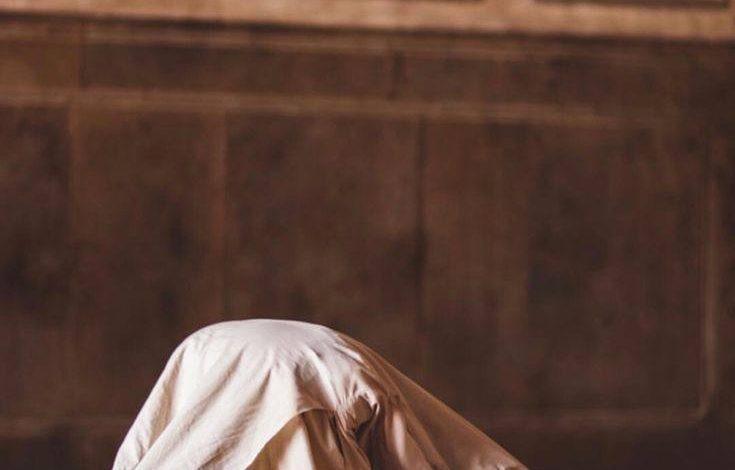#1182: Ruling on Facing the Sun directly when Observing Salāt

QUESTION:
“Assalaamualeikum. Yaa sheikh, May Allah assist you in this great work. pls sir, my question is, facing the ☀️sun to pray, in some masjid they would bend the prayer mat saying you have to give ur right🙋 to the ☀️sun not facing it direct. pls sir, is there hadith that back this up. Thanks”
ANSWER:
Wa Alaykum Salām Warahmatullāh Wabarakātuh.
Alhamdulillāh.
There is nothing to our Knowledge with regards to this.
In any ways, if you are in Nigeria, it means that you would be facing the rising place of the sun as your Qibla and would not be observing any Salāh facing the sun directly except Salātu Ad-Duhā because there is no Obligatory Salāh between Fajr (before the rising of the Sun) and Dhu’hr (when the Sun just shifts off it’s Zenith). Every other Salāh you would be observing would have the sun at your rear… The Question asked is therefore not clear to us.
If however you mean that the Qiblah adopted by the Masājid is not directly looking towards the sun, then this is clear…
And the reason is that there are 6 types or levels of Qiblah as the Fuqahā have mentioned.
The first is known as Qiblatu Al-Mu’āyanah the Qiblah of the one who is in the Haram. As for him, he must face exactly the Ka’abah without a doubt. This is because he can see it or is together with a people or in a place where the Ka’abah is seen.
The Second is known as Qiblatu Al-Musāmatah. This refers to the one who is in the City of Makkah but can not see the Ka’abah except that he can point at it’s direction and can most likely get it’s exact spot by way of direction. This person is also exactly required to be precise.
The Third is known as Qiblatu Al-Wah’y. This is the Qiblah that the Rasūl Salallāhu Alayhi Wasallam faced himself in all of the Masājid that he prayed. As for this, a person in such a place must pray in the exact direction to which the Rasūl Salallāhu Alayhi Wasallam prayed. This is because it is a Wah’y (Revelation) from Allāh.
The Fourth is known as Qiblatu Al-Ijmā’. It is the Qiblah to which prayed the Companions and the Tābi’īn in the big cities of the Muslims such as the Masjid of Kūfa where ‘Alī radiyallāhu ‘anhu led the Muslims in his Era as the Khalīfah and the likes of them. Because it is agreed upon, there is no excuse to live in those cities or to pray in those Masājid facing other than it’s exact facing.
The Fifth: Qiblatu Al-Ijtihād that is the Qiblah that is found in every other place after that where the Believers have tried hard to get the precise direction of the Ka’abah from where they are.
The Sixth: Qiblatu An-Nāfila Fī As-Safar
As for this, it is to say that the one who is on a journey and on his mount my observe his Salāh facing any direction that his mount/vehicle faces. This is confirmed in the Sunnah.
***
If you comprehend what has preceded, it becomes clear to you that the Qiblah that we face in our Masājid today falls into the fifth category and that is Qiblatu Al-Ijtihād in such a way that we are obliged to try to be as precise as possible in accordance with what the People have come to accept.
In Nigeria today, the Qiblah is assumed and accepted to be about 66 degrees Eastwards from the True North. That is about 30 degrees Northward tilt from the direction of the Sun. Please note that this has nothing to do with facing or not facing the sun. It’s just a Geographical Direction of where the Ka’abah is with respect to Nigeria.
Lastly, it’s important to note that though the Sharī’ah commands us to try to be precise as possible while seeking out the direction of the Qiblah because facing the Qiblah is an obligation, we are not obligated to be too detailed and/or to consider the Salāh valid or invalid to the minutest degrees. This is because the Ulamā have agreed that Qiblatu Al-Ijtihād refers to direction and is not strict with respect to precision spot of the Ka’abah. Imām Al-Qarāfī mentioned this in Al-Furūq.
Likewise, if you come into a city aside Makkah and Madīnah and you see that the city has agreed and are observing their Salāh in accordance to a given Qiblah, then it is obligatory upon you to follow in that and not to do another Ijtihād to seek the Qiblah direction. This was affirmed by Taqiyuddīn As-Subkī in his Fatāwah, Ad-Dardīr in Ash-Shar’hu As-Saghīr, An-Nawawī in Al-Majmū’, Ibn Quadāmah Al-Maqdisī in Al-Mughnī and Ibn ‘Ābidīn in Al-Hāshiyah.
And Allāh knows best.
Bārakallāhu Fīkum
Jazākumullāhu Khayran
Abū Āsim
8th Muharram, 1443AH
📚 IslāmNode
https://telegram.me/IslamNodeQuestionAnswers
https://t.me/INQAArchive




